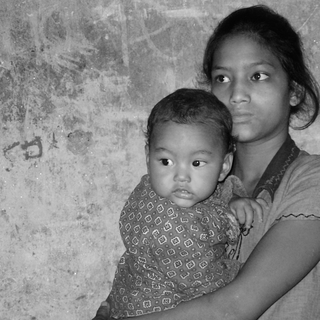Boarding schools are widely believed to foster discipline and growth in children, especially those who have a poor family environment at home, or come from local schools with poor education. Also called residential schools, boarding schools are known to offer healthier, and sometimes more experimental learning options, which make them an attractive choice for parents. Amidst all the conversations about what’s best for a child, however, it’s not just educational quality of a school that needs to be taken into consideration. It should be imperative to take into account a child’s mental health, which then influences their learning ability, when making the decision to send them away.
A child can grow more independent, disciplined and well-rounded after going away to learn at a boarding school — but this isn’t a universal phenomenon. “It depends on the basic personality of the child you’re sending to boarding school,” Dr. Sagar Mundada, a Mumbai-based psychiatrist, said. If a child is inherently flexible, not highly sensitive, and has been in social circles before, the boarding school can be a good experience for them. But if a child has an intricately sensitive personality, then boarding school can be toxic, he added. “In a sensitive, isolated, emotionally scarred child, the chances of developing childhood depression, anxiety disorders, and social phobias are very high,” Dr. Mundada said, adding the child could also develop substance abuse problems. In his experience, children are often sent to boarding schools because the parents are not getting along well, and need to distance the kid from problems at home. “The kid could then feel guilty for causing problems, and see being sent to boarding school as a punishment, and not as a learning experience.”
Children suffer a sudden loss of their parents or guardians when sent away to boarding school, which can be traumatic, writes Joy Schaverien, a psychoanalyst and member of the International Association of Analytical Psychology, in “Boarding School Syndrome: Broken Attachments A Hidden Trauma.” Away from home, the child finds a lack of intimate contact and love, which forces them to construct an armour around themselves to protect them from the intensity of emotion that they are not yet equipped to handle, according to Schaverien.
When a child grows at home, their environment and family adjust themselves around the evolving personality of the child. At boarding school, however, the process is reversed, which could lead to a “psychological splitting” : While the child learns skills to be independent and disciplined at boarding school, and appears to be well-adjusted, it’s merely a shield to protect the vulnerable self, which results in a cluster of symptoms called the “Boarding School Syndrome,” Schaverien writes.
“The child then makes no emotional demands but also no longer recognizes the need for intimacy,” according to Schaverien, who writes that this unconscious behavioural pattern can extend into adulthood. It is important to note that every child is different, and no two children will have the same reaction to boarding schools. For example, “A child at 13 is more mature, psychologically, and physically, than the prep school child. At 16, some make an informed choice to complete their education away from home.” There is, however, a pattern to how younger children handle being at boarding school that Schaverien has discerned from her experience as a clinical psychologist, she writes.
Related on The Swaddle:
Is A Boarding School Actually Worth It?
It can lead to “profound developmental damage, a history of broken relationships, and marital and work-related problems,” according to Schaverien. For example, “The person may make deeply dependent relationships and then suddenly emotionally or, actually, abandon the loved person. This cutting off from emotional need can be experienced by the partner as a violent attack or abrupt rejection.This often replays in the transference and may lead to the sudden termination of analysis when the rage associated with dependency begins to surface,” she writes. The reason for this exaggerated effect could be the repetitious nature of being sent away to boarding schools; it’s not just a one-time loss, but that which is experienced after every term. It disorients the child and prevents them from settling in one place. Despite the tangible advantages of boarding schools— quality academic, social and sporting opportunities — it’s possible the child won’t be able to make the most of their experience.
While the concept of boarding schools itself is not the problem factor here, it is important to understand it might not be for every child. So, how does a parent decide whether or not to send their child to boarding school?
“It’s not an all or none phenomenon,” Dr. Mundada. Sending a child to boarding school is a big decision, he warned. The ideal decision-making process should involve a medical health professional, who can evaluate the child with the help of sessions and psychometric tests. Parents are not able to make the decision objectively, since they are too emotionally involved with their child, Dr. Mundada said, adding that there are no cardinal rules, but through technical evaluations, psychologists can determine if a child will flourish or flunk in boarding schools.




